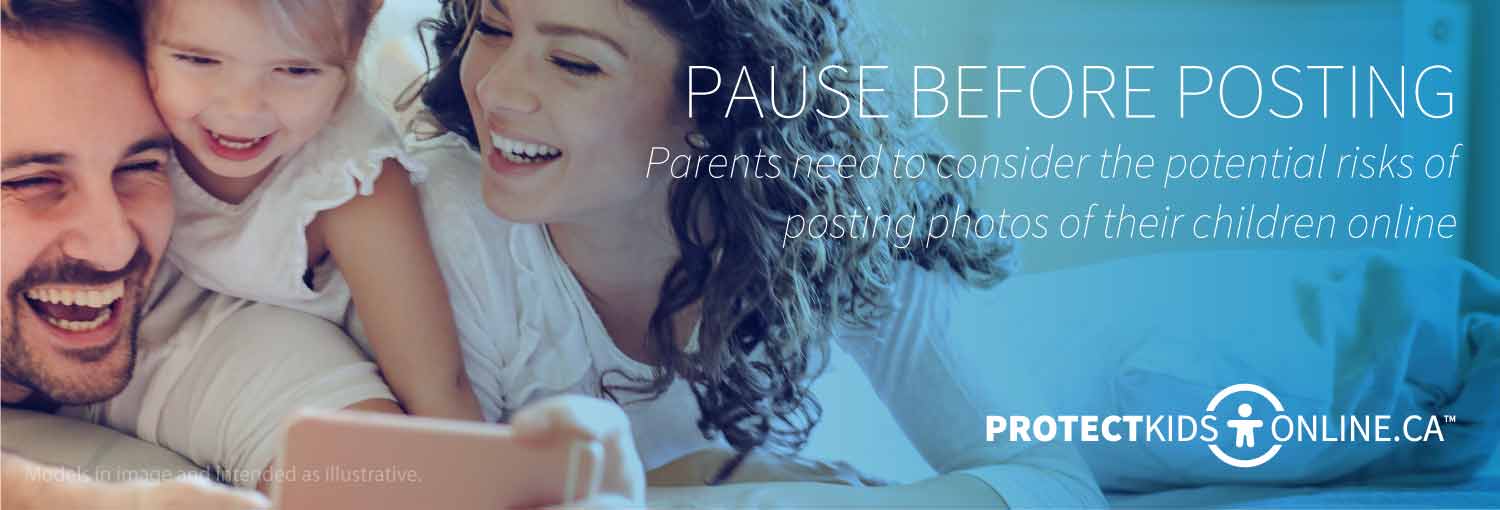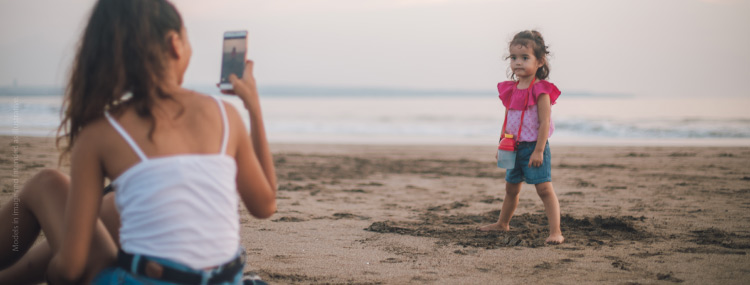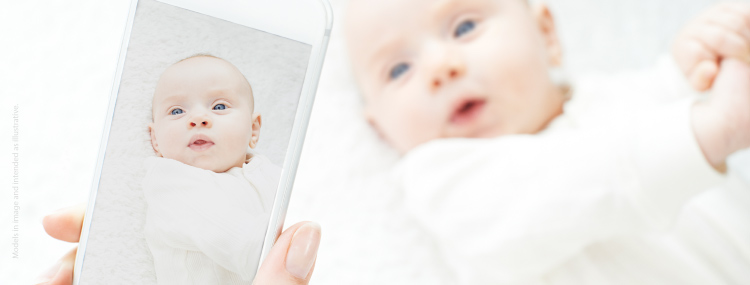Pause Before Posting
Parents need to consider the potential risks of posting photos of their children online

Everyone probably has an embarrassing bathtub photo their parents took when they were little. Back in the day those photos were printed and put in a personal picture album maybe only to be shared with those closest to the family. Today’s reality is that a lot of kids are growing up online with every one of their firsts becoming share-worthy moments. And it’s not just one photo; it’s daily posts, tweets®, and snaps cluttering up public feeds.
This culture of “sharenting” has raised some ethical issues — such as children’s right to privacy and monetization of such memories — but from a child protection standpoint there are much bigger concerns with publically posting photos of children parents need to be aware of.
In our role of operating Cybertip.ca, Canada’s tipline for reporting online child sexual abuse and exploitation, analysts often see innocent photos of children within pedophile forums that are likely stolen from social media accounts. These images are often accompanied by disturbing captions related to the individuals’ sexual interest in children, or making false claims they have access to the child in order to barter with other offenders for images of child sexual abuse material.

What might surprise parents even more is these are not necessarily nude or semi-nude images (e.g., bathtub, diaper photos) of children but rather innocuous photos of everyday life, such as playing at the park or the beach. It is also not uncommon to see these stolen images altered whereby a child’s face is photoshopped onto another child’s nude body or images involving sexual assaults.
Analysts at Cybertip.ca know all too well how fast child sexual abuse material can spread, and every time an image/video is shared online amongst individuals with a sexual interest in children, the child in that material is re-victimized. Once an image/video is circulating online, it is not easy to remove the material’s digital footprint (although the Canadian Centre for Child Protection is working to change that through Project Arachnid).

So, if you’re going to post photos of your children, consider the following:
- Don’t post nude or semi-nude images of your children.
- Set your profile to private to ensure only people you know are viewing images. That being said, review your friends/contact list to make sure you DO know the people listed there in real life.
- Don’t post photos that show your regular routine or could make your child identifiable (e.g., photos in front of school or school uniform). Turn off geotagging which tells users where you are.
- We constantly remind youth that whatever they post online is permanent; everything has a digital footprint. The same sentiment applies to posting photos of children. Ask yourself, could your child be embarrassed, ashamed, or become anxious by this now or in the future? Ultimately, it’s not your photo; it’s your child’s and their privacy should be considered.
- Children will learn their own online behaviours from their parents. If you’re in the habit of oversharing on social media, chances are when your children join the online world they will be too. Be a good digital role model.